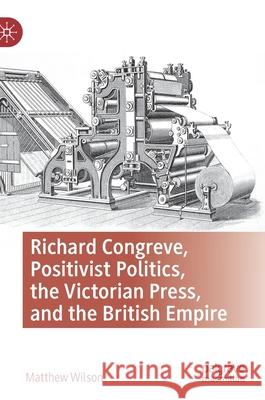Richard Congreve, Positivist Politics, the Victorian Press, and the British Empire » książka
topmenu
Richard Congreve, Positivist Politics, the Victorian Press, and the British Empire
ISBN-13: 9783030834371 / Angielski / Twarda / 2021 / 339 str.
Richard Congreve, Positivist Politics, the Victorian Press, and the British Empire
ISBN-13: 9783030834371 / Angielski / Twarda / 2021 / 339 str.
cena 403,47
(netto: 384,26 VAT: 5%)
Najniższa cena z 30 dni: 385,52
(netto: 384,26 VAT: 5%)
Najniższa cena z 30 dni: 385,52
Termin realizacji zamówienia:
ok. 22 dni roboczych.
ok. 22 dni roboczych.
Darmowa dostawa!
Kategorie BISAC:
Wydawca:
Palgrave MacMillan
Język:
Angielski
ISBN-13:
9783030834371
Rok wydania:
2021
Wydanie:
2021
Ilość stron:
339
Waga:
0.59 kg
Wymiary:
21.01 x 14.81 x 2.24
Oprawa:
Twarda
Wolumenów:
01
Dodatkowe informacje:
Wydanie ilustrowane











